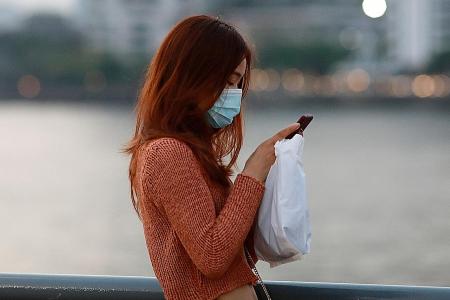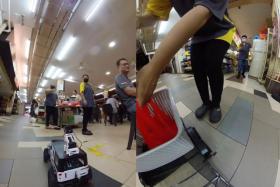Overseas calls to come with "+" to protect mobile users from scams
All overseas calls will come with the "+" prefix by April 15 to help the users of more than nine million mobile phone lines here better identify possible scams.
Announced by Senior Minister of State for Communications and Information Janil Puthucheary yesterday, it is one of several measures the Government will roll out to protect citizens and their personal data.
"Scammers based overseas sometimes spoof calls to look like local calling numbers to target our citizens, such as by spoofing numbers that start with '65'," said Dr Janil during the debate on his Ministry's budget.
With the "+" prefix, it is hoped consumers can better identify international spoof calls.
For instance, +6955 0221 and +4241 2345 are likely to be spoofed calls. Consumers are advised to be vigilant and not share confidential data over the phone if they are not expecting overseas calls.
The measure is in addition to rules requiring local telcos Singtel, StarHub, M1 and TPG Telecom to block commonly spoofed numbers, such as 999 and 995.
Police statistics show China-official impersonation scams are among the top 10 scam types here, alongside e-commerce, loan and credit-for-sex related scams.
The number of China-official impersonation scams - in which scammers trick victims to transfer money to their accounts or give out banking details - rose by 50 per cent yearly to 455 last year, with losses amounting to $21 million.
Local calls, including those from the authorities and legitimate organisations like banks, will not have the "+" prefix to help consumers better differentiate the calls.
LIMITATION
One limitation of this measure is it cannot be imposed on WhatsApp and Viber calls - though official calls do not typically come via these platforms.
Mr Ong Teng Koon (Marsiling-Yew Tee GRC) and Mr Yee Chia Hsing (Chua Chu Kang GRC) asked about measures to guard against the misuse of facial recognition technology to secure entry into buildings and for attendance-taking, given its popularity.
Responding, Dr Janil said the Personal Data Protection Commission and the Government Data Office, which oversees data management practices across the public sector, will publish guides on the responsible use of biometric technology later this year.
Also, data protection rules governing the public sector will be harmonised with those for the private sector later this year, in the first major revision to address longstanding criticisms that private firms are subject to stricter measures.
Get The New Paper on your phone with the free TNP app. Download from the Apple App Store or Google Play Store now


